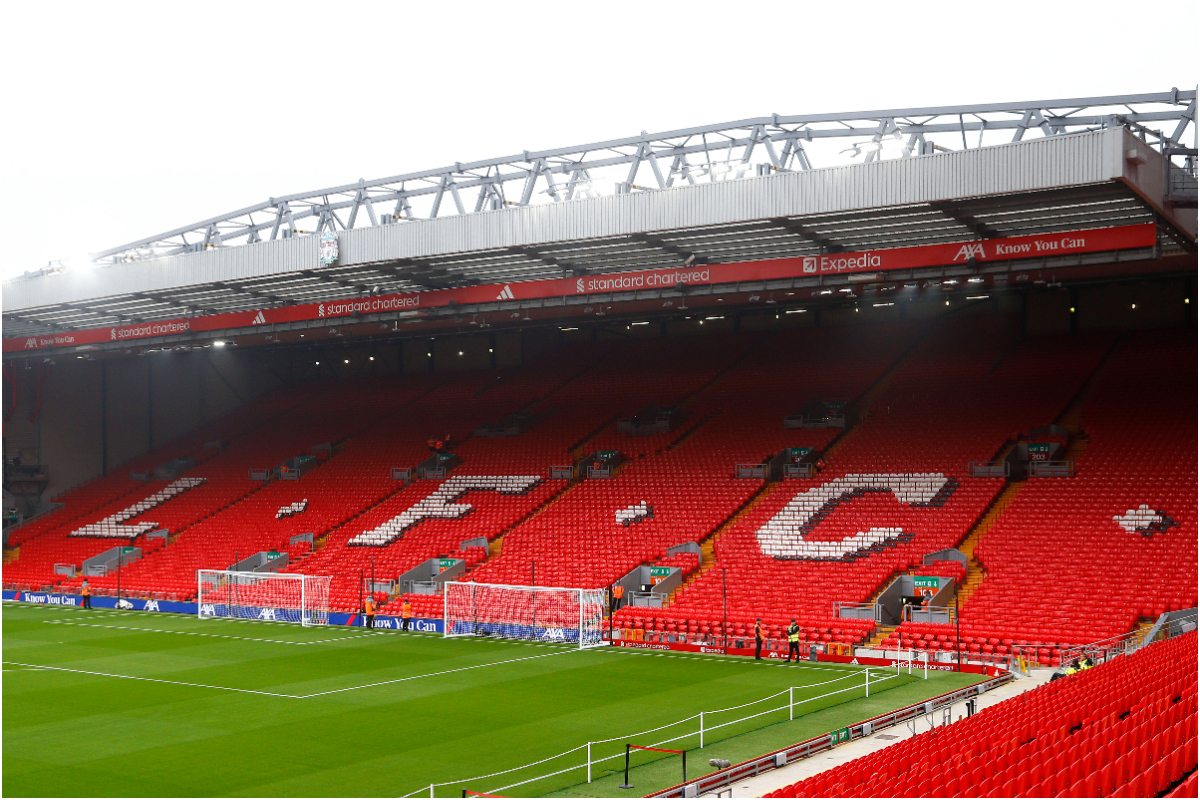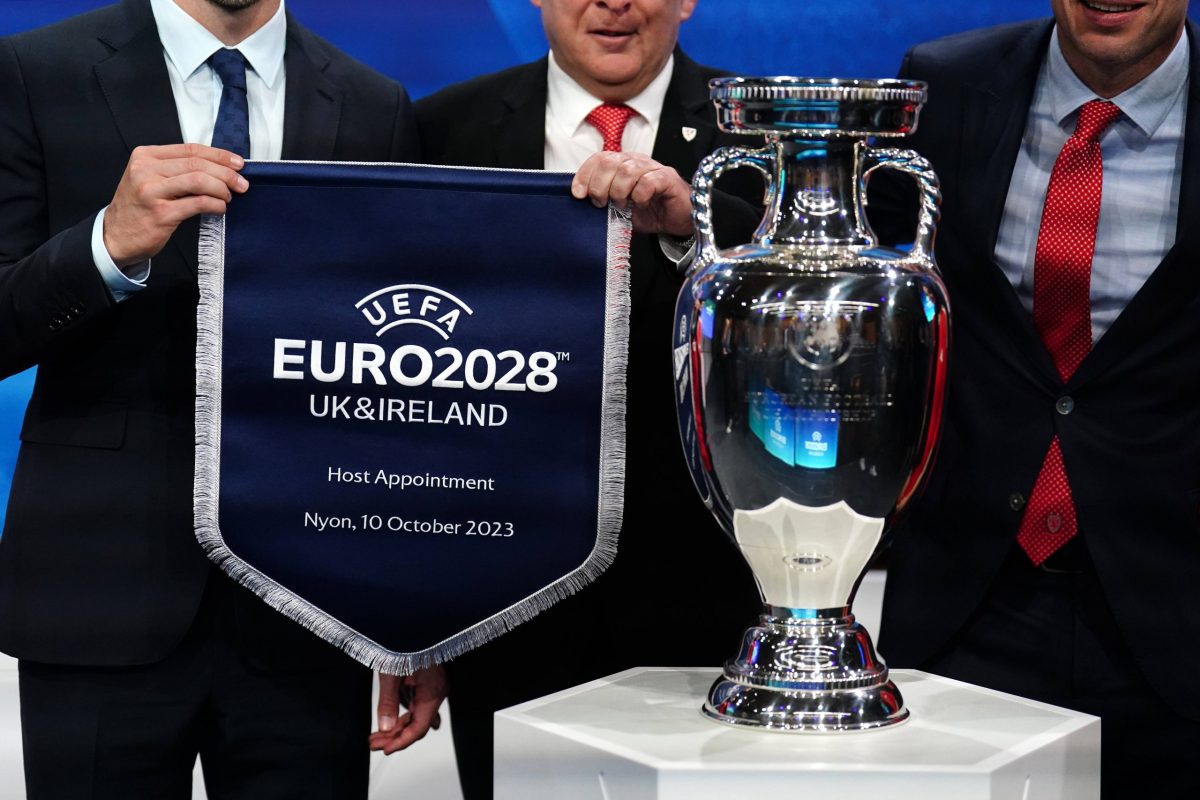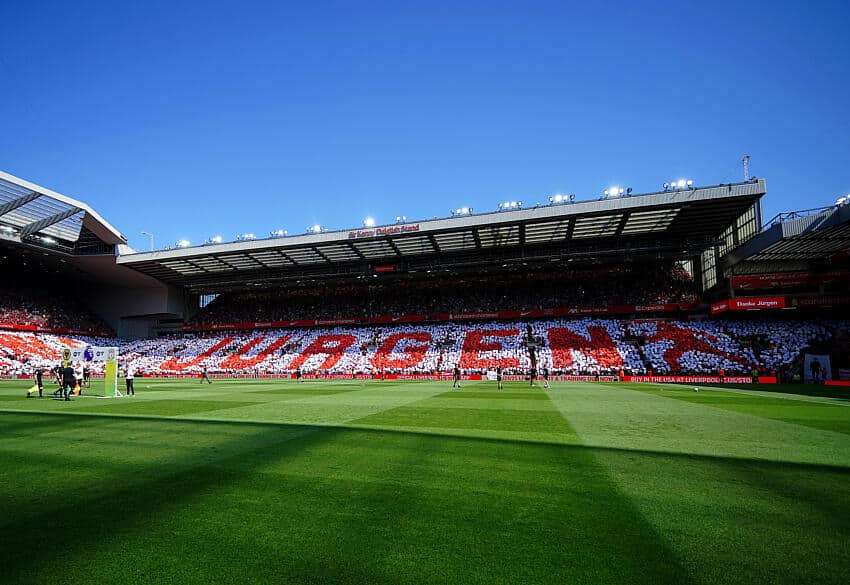
The list of host venues for Euro 2028 has been confirmed, with Everton’s new Hill Dickinson Stadium chosen to stage five matches, including a possible England fixture.
Yet, Liverpool’s world-famous Anfield is absent from UEFA’s official selection, despite recent redevelopment work.
The UK and Ireland’s joint bid, approved by UEFA in October 2023, promised a spread of matches across major cities.
The tournament begins in Cardiff on June 9 2028, with the final set for Wembley Stadium on July 9, closing a month of football.
Alongside Wembley, England will be represented by the Tottenham Hotspur Stadium, Villa Park, St James’ Park, Manchester City’s Etihad Stadium, and Everton’s Hill Dickinson Stadium. Dublin’s Aviva Stadium, Hampden Park in Glasgow, and Cardiff’s Principality Stadium complete the nine-venue list.

The reason for Anfield’s exclusion from Euro 2028 venues
Anfield’s omission raised eyebrows, especially given its expanded capacity of over 61,000. Many expected the stadium to return to tournament duty for the first time since Euro 1996, when it hosted group matches and a quarter-final between France and the Netherlands.
However, the reason for its exclusion is straightforward, as UEFA requires pitches used at major tournaments to measure 105 metres by 68 metres, but Anfield’s surface is only 101 metres long, falling short of the mandatory standard for international events.
UEFA’s pitch regulations leave no room for exceptions, meaning Anfield cannot be considered for Euro 2028 in its current form. The issue is technical rather than commercial, and capacity improvements alone cannot override strict competition requirements.

Why Liverpool cannot extend Anfield pitch size
Liverpool are unable to extend the pitch due to spatial and structural limitations around the stadium bowl. This constraint has also ruled Anfield out of hosting Champions League or Europa League finals, despite its global profile and famous atmosphere.
As a result, Everton’s 52,769-capacity Hill Dickinson Stadium will carry Merseyside’s representation at the tournament. The venue will host four group stage games and a Round of 16 fixture, giving it a prominent role on the European stage.
While Anfield will miss out, Liverpool as a city will still feel the benefit of Euro 2028 through increased tourism and regional exposure. However, the spotlight will shift firmly towards Everton’s modern waterside home throughout the tournament.
FGG Says
Anfield missing out on Euro 2028 is a reminder that modern infrastructure and compliance matter just as much as history. The atmosphere may be world-renowned, but UEFA’s technical standards leave little space for sentiment when selecting host venues for major tournaments.
Everton’s Hill Dickinson Stadium now becomes Merseyside’s showcase arena, and its inclusion reflects how essential contemporary design has become in football.
While Anfield’s prestige endures, this tournament underlines the competitive advantage enjoyed by clubs investing in future-proof facilities.
